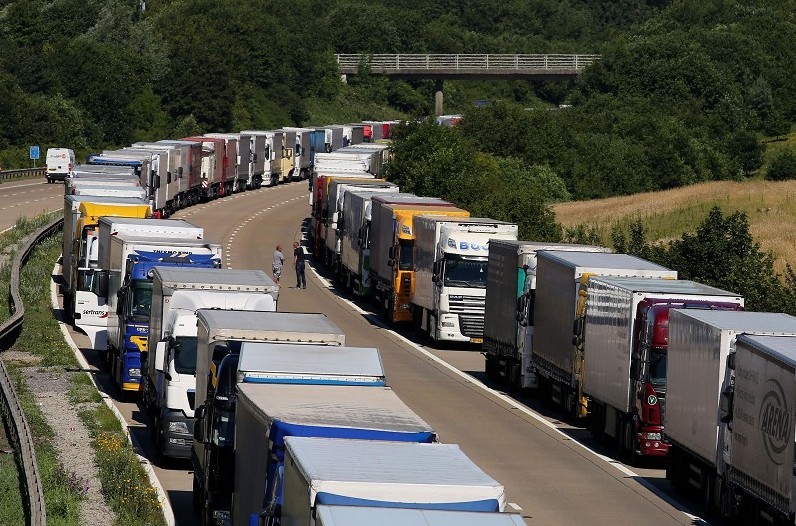Scottish fish processing chiefs have warned their industry may never recover if the crippling Channel crossing crisis is not resolved swiftly.
They also says job losses are inevitable if they continue to suffer the heavy losses caused by weeks of industrial action in France.
Trucks loaded with valuable seafood have been ambushed in the north-west of the country by farmers protesting against cheap foreign food imports
A convoy of seven lorries carrying fish from the Highlands to the continent was hijacked last week and drivers were threatened before cargoes worth about £200,000 were destroyed.
Now processors in the north and north-east have called for urgent action to prevent their industry’s prestige being lost forever.
The Scottish Seafood Association says the crisis is causing “real concern” for a lot of its members.
Association chairman Will Clark branded the actions of the French farmers “deplorable”.
He said: “We have been dealing with the ongoing issue of illegal immigrants in the tunnel, then we had the ferry strikes and now, to cap it all off, we have had the French farmers carrying out criminal acts.
“They are breaking every EU rule and they’re being rewarded with something like 600million euros (£419million) in compensation.
“The consequences are it’s causing devastation for our members, especially fresh seafood that’s getting exported from the north-east of Scotland.”
Mr Clark said the biggest casualty of the crisis was the industry’s credibility with its customers, which has now hit a critical low.
He added: “If you can’t supply supermarkets in Italy, Spain and France, you will get de-listed, which means they won’t stock your product, and we will lose our market share.”
Suppliers argue that any delay in transporting fresh seafood and fish can ultimately lead to the products having to be wasted.
Nash Singer – assistant manager at Aberdeen-based refrigerated transport firm Davidson and Wilson, who travel to Boulogne on the French coast – said the drivers were also suffering.
He added: “Normally, they would leave Glasgow about 6pm and get to Dover around 3am and it would take around one or two hours to cross.
“But now, they’re sometimes not getting across until 11am – it’s not good for the fish and it’s not good for the drivers.”
The impact is being felt by firms across the country.
Caladero Scotland – based at Prestwick in Ayrshire – has been hit hard as all its income is derived from European exports.
The firm, which employs about 30 people, is only working to 25% of its production capacity and has had to reduce its orders from fishing vessels to avoid losing shipments.
The firm’s director, Richard Faulkner, said he feared the situation may be too far gone and the company might never recover.
He said: “The main problem is the future, it’s trying to build up again what we have lost – our customers’ confidence.
“At the moment we have not had any job losses but if it continues on much longer we’ll lose our place on the shelves, we’ll lose production and then, inevitably, we will lose jobs – which no one wants to see.”
